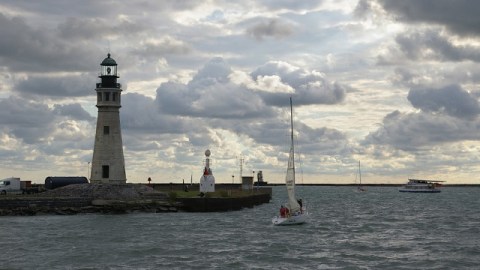Getting A Wireless Connection Under The Sea

What’s the Latest Development?
University of Buffalo researchers recently dropped two 40-pound sensors into the waters of Lake Erie just off Buffalo and sent a command to them using a laptop on the ground. The series of chirps that resulted marked a major step in their development of a wireless underwater Internet that uses sound waves to transmit data directly to computers and smartphones. The system will differ from previous versions in that it eliminates the surface buoys used to convert sensors’ sound waves to radio waves, which are then sent to computers via a satellite.
What’s the Big Idea?
Several different organizations, including the National Oceanic and Atmospheric Administration, use sound wave-based systems to receive underwater data, but different infrastructures make sharing that data difficult. The University of Buffalo system would eliminate that problem by creating a worldwide standard. In addition to marine data collection, an underwater Internet could help improve tsunami warning systems, spot illegal submarine drug traffic, and aid in searches for sources of oil and natural gas. The researchers will present their project next month at the ACM International Conference on Underwater Networks and Systems.
Photo Credit: Shutterstock.com





